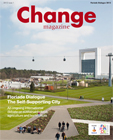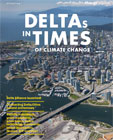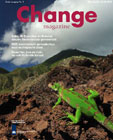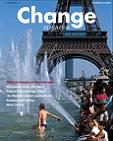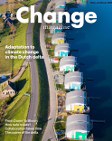Heaven can wait this is paradise

By Ruud Koornstra, entrepreneur in sustainability and partner of Tendris
One of the most exciting periods in our history was the Golden Age a time when the young Republic of the United Netherlands was booming at an unprecedented, and since then unparalleled, rate. This affluence was gained in part by less-than-respectable means war, slavery, piracy and land grabbing but the country flourished nonetheless. Foreign countries praised the orderliness of our beautiful cities, the religious and intellectual tolerance, our establishment of orphanages and hospitals and the low incidence of crime. Art, science and philosophy were remarkable. The Netherlands was a hot spot for innovation and ingenuity, for special talent and entrepreneurship. The Netherlands has become what it is today thanks in part to its Golden Age. I see a direct link to my good fortune today, many centuries later. I am privileged to spend my summer holidays in the sunniest municipality of the Netherlands Bonaire, more than 7000 kilometres from the Dutch coast.
Bonaire can become a textbook example of sustainability
On this beautiful island of less than 300 km2 (almost three times the size of the Dutch island Terschelling) with just about 13,000 inhabitants, friendly people treat their environment with care. Local and Dutch organizations, such as the National Postal Code Lottery and the WWF, have worked together with the Bonaireans on the development of this Caribbean island. On 10 October 2010 Bonaire, Saba and St Eustatius became special municipalities of the Netherlands. And Bonaire is indeed special.
The island can become a textbook example in the world of sustainability. Much remains to be done, but the arrival last year of a container ship in the port of Kralendijk marked the beginning of a new era with respect to the island's energy supply. I watched as twelve wind turbines in various pieces were loaded onto the dock. And last month I was there to witness the inauguration of this new energy production project, consisting of 13 wind turbines and a diesel (eventually biodiesel) plant. In combination with perfect local management, this plant will produce Bonaire's entire supply of electricity. The plant started with a sustainability of 45 percent. Once it switches over to biodiesel, its sustainability will be 100 percent.
This means Bonaire is the first Caribbean island to use only sustainable electricity. It is also the first time in history that this combination of sustainable energy technologies is being applied on such a large scale. With the inauguration of this installation, Bonaire has come one giant step closer to achieving its dream of becoming the first place on earth to be entirely independent of fossil fuels. The next steps are to make all cars electric, step up decentralized production of solar energy, work on energy efficiency and process waste into usable products. These sustainable developments will be realized, and they will lead to more jobs, a higher standard of living and more enjoyment for the island.
My line of work is sustainability. For nine years, as an entrepreneur using our simple approach. I have been demonstrating that you can spark revolutions with sustainability as a connecting force. The struggle for "freedom" was a motivating factor behind the revolt that marked the start of the Golden Age. The Republic became a hot spot for technological power, fuelled by inventions such as street lighting, windmills, locks, and industrial renewal in energy and production. Such hot spots have a special, almost magical, influence on fundamental or paradigm-altering events. The Netherlands is still the market leader in technological renewal with Bonaire we can demonstrate that it really works. I am convinced that Bonaire can become a magical hot spot of renewal in the global quest for energy freedom, or in other words: Power to the People.
 Synergos Communication
Synergos Communication
